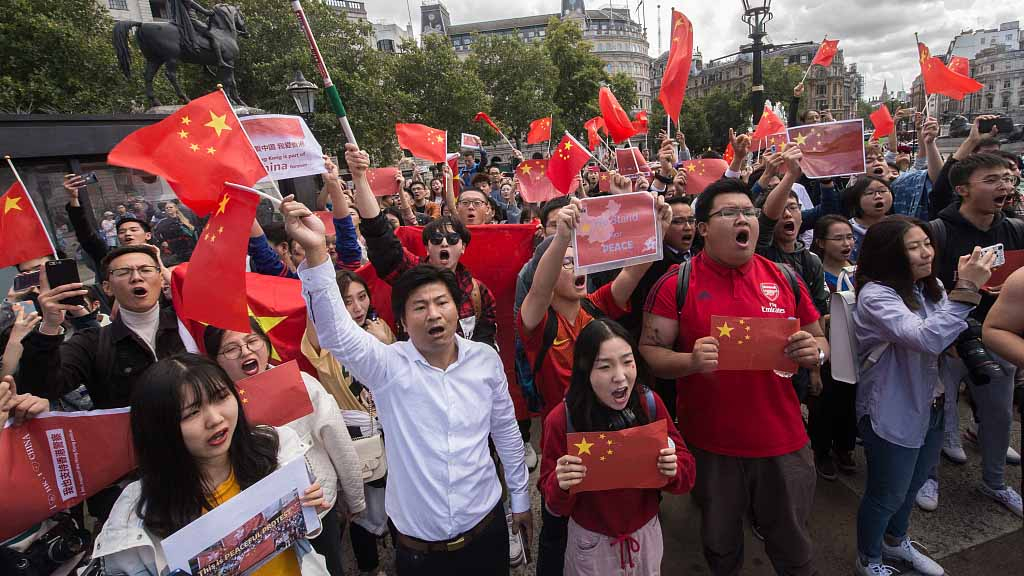

Across the modern world, exhibiting a sense of patriotism is often riddled with negative connotations these days. Back in 2014, prominent British politician Emily Thornberry resigned from her post in the shadow cabinet after tweeting a picture of a house bearing the Saint George's Cross. Her tweet contained no condemnation, no words even, but it was enough for the British public to read her disdain for a display of patriotism.
This suspicion of patriotic tropes is especially true for the Chinese students who study abroad subjected to the wrath of their peers. “When they (overseas Chinese students) say they are proud of China, their American counterparts are very likely to tell them that 'you are brainwashed,' or 'you are misled by your government',” Timothy Lin, CEO and chief editor of College Daily, a Chinese-language new media platform focusing on Chinese students studying in the U.S. and Canada, said in an interview with CGTN.
“I learnt the word ‘patriotic’ from American people when I was studying in the U.S.” Lin said. “Maybe it’s not a word for Chinese,” he joked. As CEO and chief editor of College Daily, Lin has been frequently criticized for his “nationalistic overtones” in authoring articles published on the platform.

Patriotism stems from many places and embodies a plethora of different sentiments: pride, love, appreciation. China has undergone dramatic changes in recent decades, with many Chinese citing this evolution as the catalyst for their patriotism. “Look at the high-speed railway being built, the skyscrapers shooting up in the cities. China is moving in the right direction and we feel fulfilled,” Liu Yunyun, chief commentator at Beijing Review, said.
“It takes almost 10 years to build a road [in the U.S.]. I graduated from Ohio 10 years ago. When I went back one year ago – the road is still being built. This is a big contrast with China. That’s why people are impressed with China,” Lin noted.
The results from a survey jointly conducted by China Youth Daily and the Communist Youth League of China last year indicate that young people in China have a high degree of national identity, with 96.1 percent of those polled saying they “often feel proud of China’s accomplishments.”
In contrast, a Gallop poll conducted in the run-up to the celebration of the July Fourth holiday in the U.S. this year shows that less than half (45 percent) of American adults are “extremely” proud to be an American, marking the second consecutive year that this reading is below half.
Further findings show that the American public’s pride come from its scientific, military and cultural achievements, rather than the U.S. political system.
It's often a lack of understanding of China that prompts negative attitudes, such as the relationship between young people and their country. Before making reactionary judgments about the kinship the Chinese have with their country, ask them why they feel that way and their answers might surprise you.
(If you want to contribute and have specific expertise, please contact us at opinions@cgtn.com.)

Copyright © 2018 CGTN. Beijing ICP prepared NO.16065310-3
Copyright © 2018 CGTN. Beijing ICP prepared NO.16065310-3